Beyonce actually outsold Drake in 2016
- Published
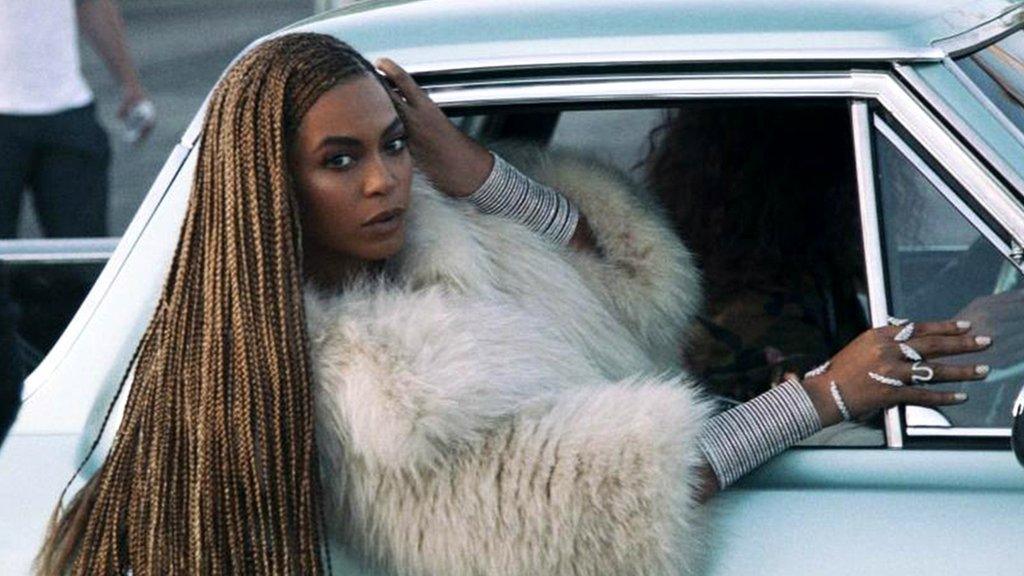
Beyonce's album was launched with an hour-long special on US television
Until today, we thought Drake's Views was the best-selling album of 2016, but new music industry figures suggest otherwise.
According to the IFPI's annual report, both Beyonce's Lemonade and Adele's 25 shifted more copies worldwide.
Beyonce topped the chart with 2.4 million sales, while Drake came third, having sold 2.1 million units.
The figures only include CDs, vinyl and downloads - which may explain Drake's sudden change in fortunes.
Once streaming is counted, he emerges as the most popular artist of 2016; with his inescapable single One Dance the year's most popular song.
The explosion in streaming services also helped the music industry grow in value for the second year in a row, with revenue up by 5.9% to $15.7bn (£12.35bn).
That's the fastest rate of growth since the IFPI began tracking the market in 1997; and comes after 15 years of downturn, during which time the music industry lost nearly 40% of its revenue.
"We are no longer running up a down escalator," observed Stu Bergen, Warner Music's CEO of International and Global Commercial Services.
Subscription streaming services are largely responsible for the turnaround. Revenue from Spotify, Apple Music and their competitors rose by 60% last year.
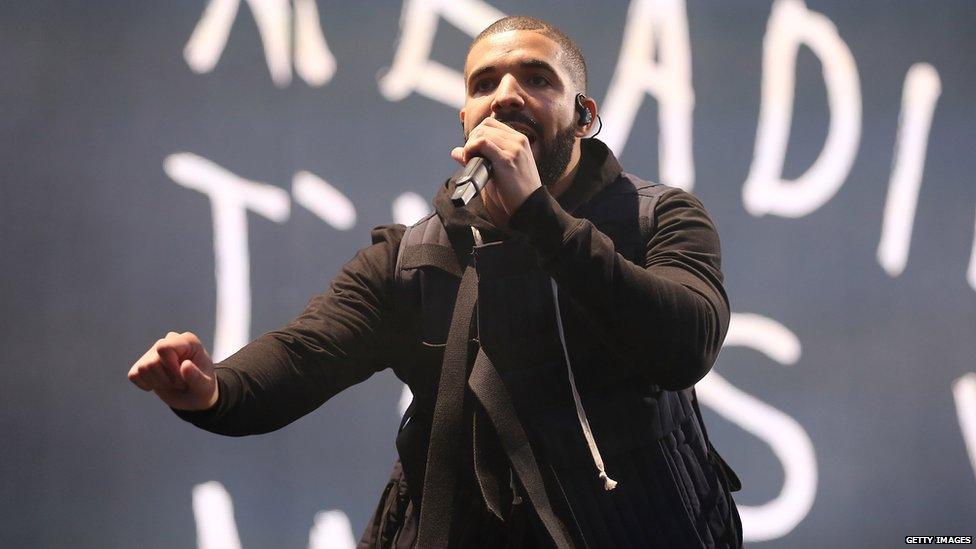
Drake dominated streaming services in 2016
By contrast, earnings from CDs and vinyl fell by 7.6%; while the value of downloads - once seen as the saviour of the industry - plummeted by 20.5%.
The International Federation of the Phonographic Industry (IFPI) launched their annual report at a low-key reception in London on Tuesday morning, soundtracked by a lounge pianist covering John Legend's All of Me and Coldplay's Trouble.
All three of the major record labels - Universal, Sony and Warner Music - attended the event; giving their perspective on the figures.
Here are some of the other headlines and revelations from the launch.
More than 110 million people now pay to stream music

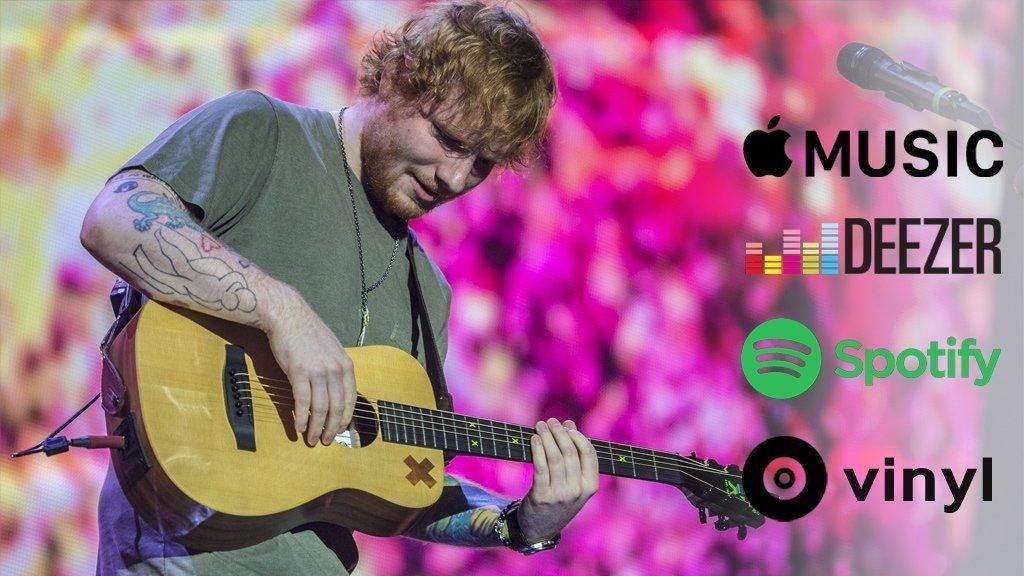
Ed Sheeran has broken streaming records all around the world this year
By the end of 2016, the number of people subscribing to a subscription service reached 97 million worldwide. With many of the users choosing a "family plan", where several members of the same household have access to the full catalogue of music, the IFPI estimates that 112 million people use a service like Deezer, Spotify, Tidal or Apple Music.
However, the industry is wary of being complacent. "To raise the mission accomplished banner would be the worst mistake we could make," said Universal Music's Michael Nash.
"We've got to continue to convince consumers that [music] is still worth paying for, if we're ultimately going to achieve sustainable growth," added Dennis Kooker, president of digital services at Sony.
In some countries, people still love CDs

Streaming might dominate the market in the UK and US - but three of the world's six biggest music markets, Germany, France and Japan, still prefer CDs.
"In this environment, breaking an artist and building a global fanbase isn't easy," noted Warner Music's Stu Bergen. "If you're going to be successful, you can't focus on a single format. It takes time, money and people."
The only thing that's certain is uncertainty

For the last 15 years, the music industry has been in a constant state of panic - Napster gutted the music market, then downloads began to overtake CD sales, before themselves being replaced by streaming.
"The music industry has received a significant amount of what I would call 'reality therapy'," said Michael Nash, head of digital strategy for Universal. "That's where you wake up and you realise, 'my old business has gone, I've got to get into a new business.'"
However, her added, "very few sectors of the economy have ever recovered from a 40% decline in revenue."
They hope to build on that turnaround by embracing change, and seeking "new business models to cannibalise old business models".
Speaking of which...
Voice-controlled speakers could be the next big thing

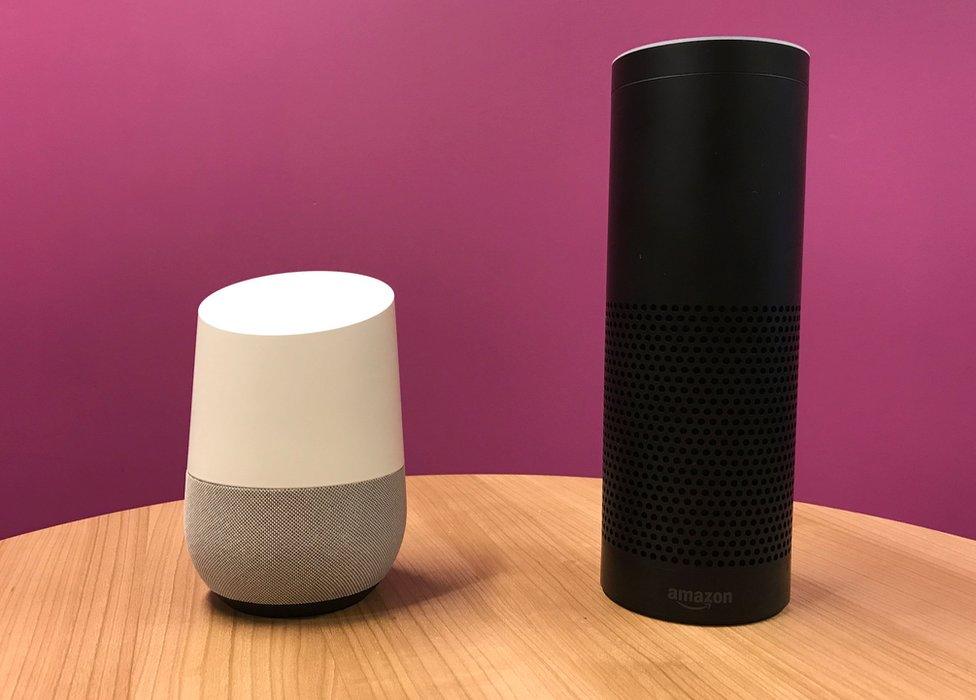
Google's Home (left) and Amazon's Echo are set to be joined by a raft of other voice-activated speakers in the next year
"One of the really exciting changes is around voice activation on smart speakers like Amazon Echo," said Mr Nash.
"You find that when you interact directly with your music service, and you have the ability to ask for any song, at any point at time, it alters how you engage with music and how you think about your music preferences.
"It'll be interesting to see how music changes from being a smartphone-driven experience, to a more communal experience in the home - where you have multiple family members requesting songs, or taking turns being DJ".
The prospect of integrating voice-activated music services into cars was also "hugely exciting" he said.
The music industry still isn't happy with YouTube

YouTube said it paid the music industry $1bn (£794m) in royalties last year - but record companies claim it's not enough.
They reckon Spotify's 50 million subscribers each contributed $20 per year to the industry's bank accounts. YouTube, which has more than a billion users, allegedly paid less than a dollar per person.
"We need to fix that," said IFPI chief Frances Moore. "It's a massive mismatch".
The industry has long complained that YouTube and other similar services are slow to police illegal and pirated material uploaded by their users (a claim which YouTube disputes).
Moore is hopeful that draft legislation put before the European Commission last year will reform the laws that allow streaming sites to avoid prosecution if they host copyrighted material without permission.
In Japan, Ed Sheeran's new album was marketed by celebrity cats


Even cats love Ed Sheeran, apparently
Even Ed Sheeran can't be everywhere all the time, so his Japanese record label had to get inventive when it came to promoting his new album.
While the star performed at the Grammys and the Brits for fans in the West, Japanese audiences were treated to videos of "celebrity cats dancing to Shape of You".
Both approaches seem to have worked - with the album shifting in huge numbers around the world.
Interestingly, despite the music industry's beef with YouTube, every track on Sheeran's album, Divide, was uploaded to the video service on the day of release. Stu Bergen said it was a sign of "acceptance that the music will be there whether we put it up or not", but vowed to continue the fight for fair royalties.
The era of streaming exclusives is basically over

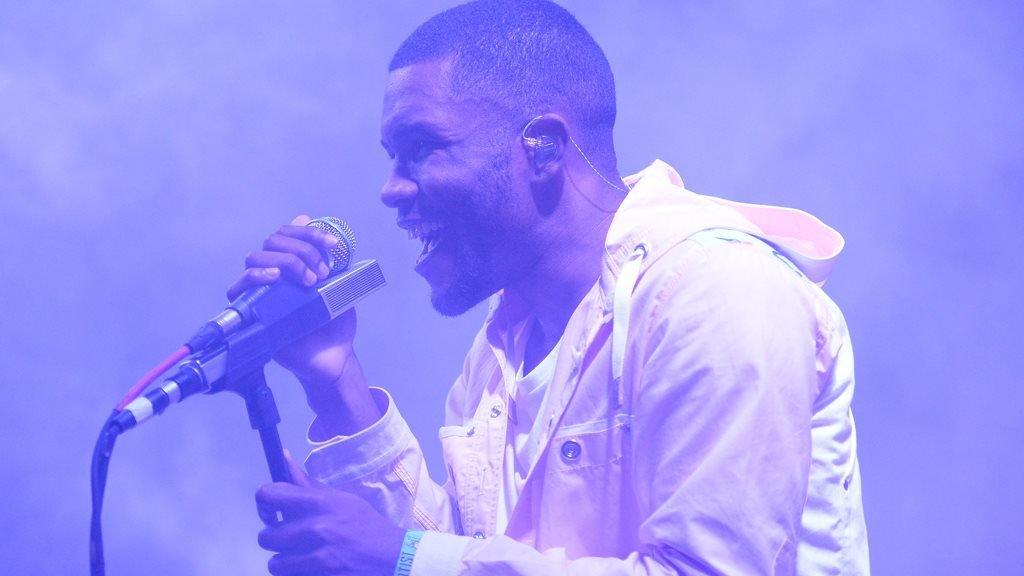
Frank Ocean's "secret" album may have pushed record labels away from streaming exclusives
Last year, R&B star Frank Ocean dramatically ended his four-year sabbatical with two back-to-back releases: Endless, a video stream released as the final album under his contract with Universal music; and the 17-track opus Blond, released as an Apple exclusive a day later on Ocean's own label, Boys Don't Cry, without Universal's involvement or knowledge.
Universal chairman Lucian Grainge swiftly emailed the heads of his record labels, outlawing streaming exclusives. Although it's difficult to establish whether the two events were linked, one thing is certain: Grainge had concluded that streaming exclusives were bad for fans, and bad for the business.
"There were a lot of things that went into our determination," said Michael Nash, the label's head of digital strategy. "We had passed a point in time where it made sense to... work on a level of exclusivity with individual platforms.
"Our general position is that our artists and our labels want to have the broadest possible audience for our music."
Dennis Kooker, president of digital at Sony Music, said exclusives would still be considered for future releases, but it was a "balancing act"; while Universal stressed that they'd generally avoided giving exclusives to one service over another: "It's not something we engaged extensively in."

Follow us on Facebook, external, on Twitter @BBCNewsEnts, external, or on Instagram at bbcnewsents, external. If you have a story suggestion email entertainment.news@bbc.co.uk, external.

- Published22 December 2016
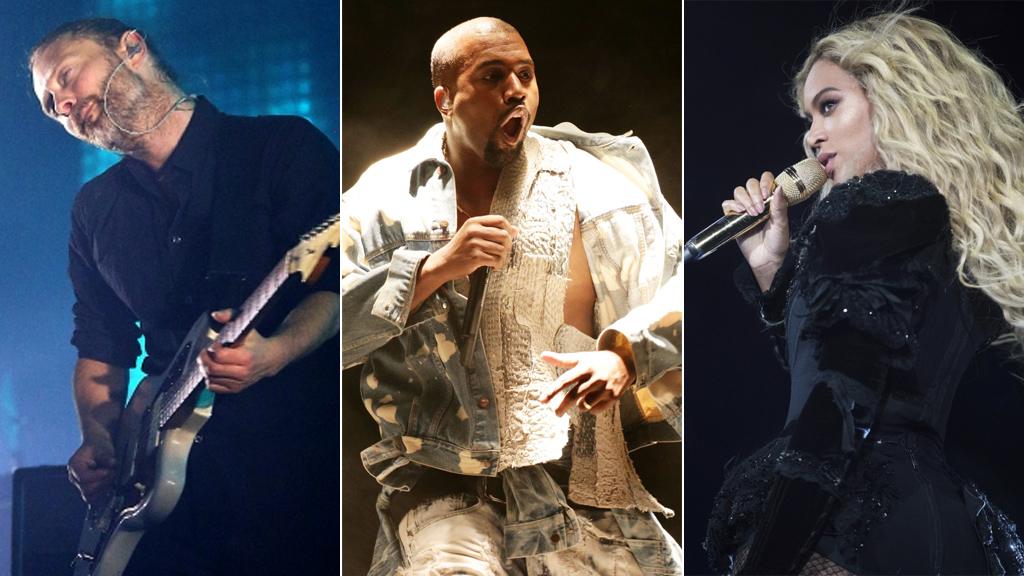
- Published3 January 2017
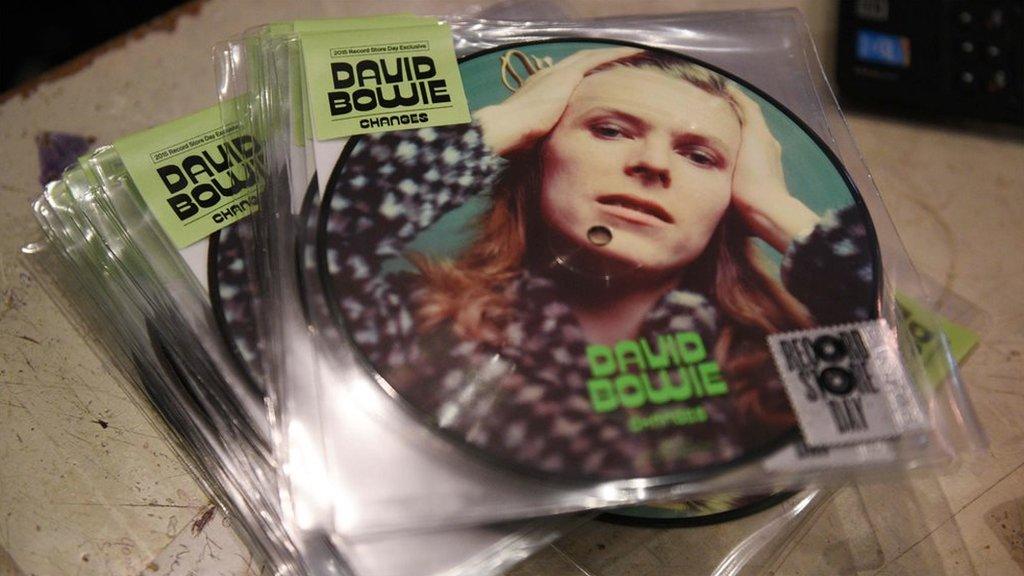
- Published6 December 2016
